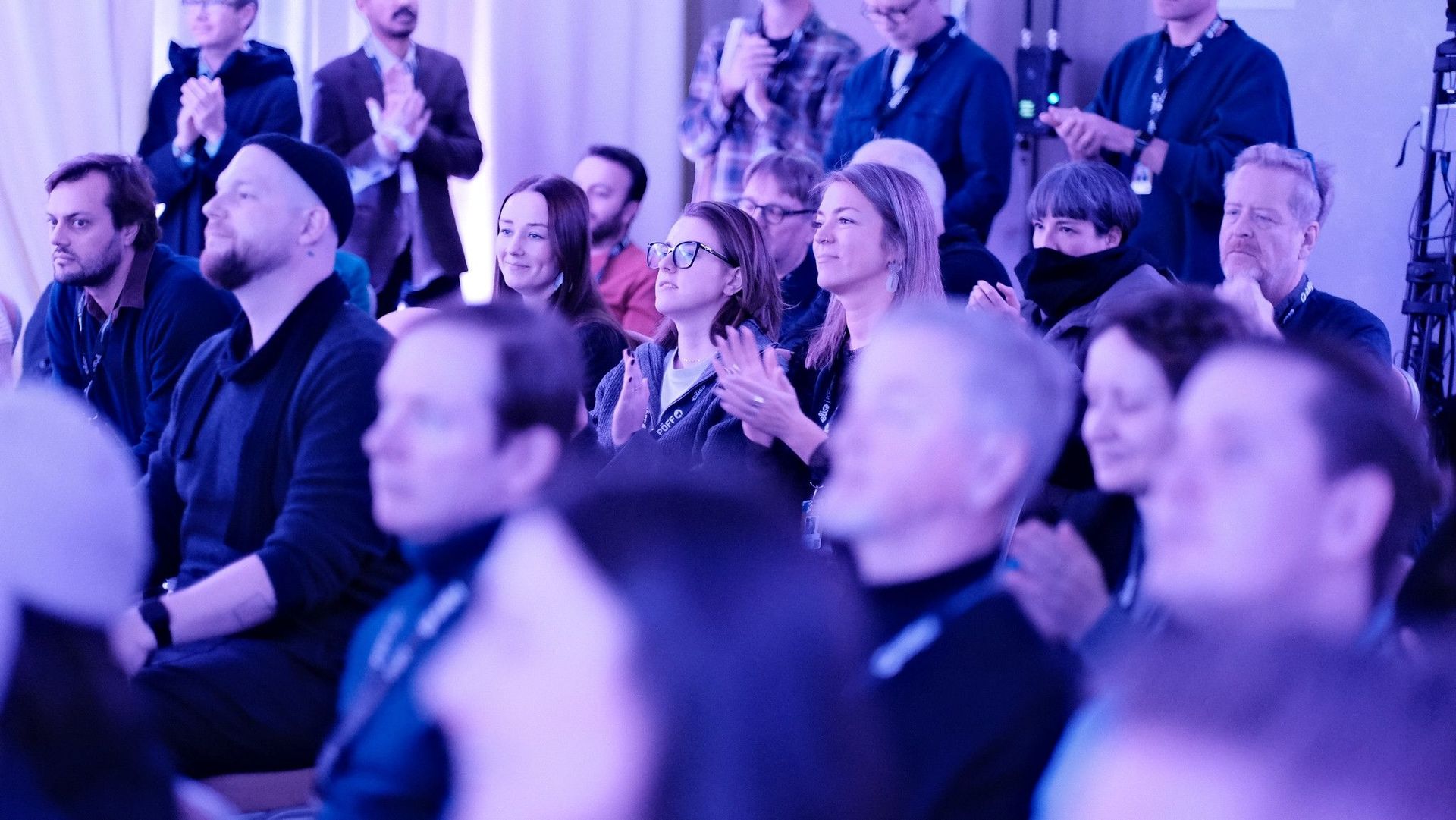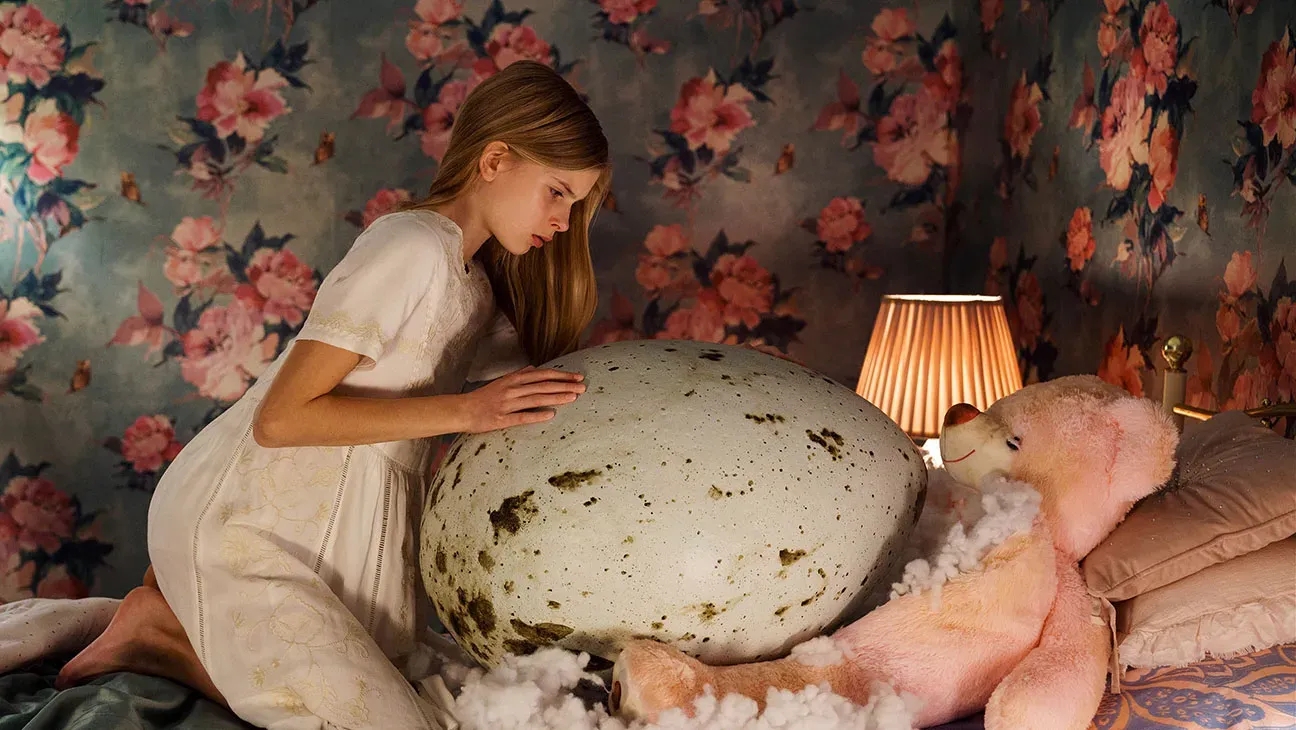
Just as he prepares to attend the next edition of the Industry@Tallinn & Baltic Event, Redmond Bacon dissects the European Genre Forum, while also identifying some exciting new trends.
Offering thrills, shocks and tropey narratives, encouraging audience participation, provoking heated debates and engaging our imaginations, genre films are a crucial part of the cinematic landscape. Yet the number of genre films produced in Europe is surprisingly low. This may represent a barrier for established and nascent filmmakers alike.
According to the MeCETES film database – compiling data from 22,000 films between 2005 and 2015 – 38% of all films produced in Europe in 2015 were dramas. Despite technically being a genre in and of themselves, drama films are not considered to be part of the common “genre” label. Meanwhile, crime dramas and thrillers (12%), action or adventure films (7%), horror and fantasy/sci-fi (3% each). This means that genre films make up for only a quarter of the total European production pie.
This holds especially true in the UK. While drama accounts for 38.7% of films made in the UK, it counts for 54.6% of films backed by the BFI. Horror, on the other hand, despite the success of British horror movies such as Saint Maud (Rose Glass, 2019) or The Woman in Black (James Watkins), accounts for 13.7% of films made, but a mere 5.7% of films backed by the state funder.
A hub for myriad professionals
This is where the European Genre Forum comes in, connecting genre filmmakers with the tools they need to get their movies off the ground. Now celebrating its 10th year with 72 genre projects under its belt, it is a pan-European project specifically dedicated to supporting first- and second-time film directors and their teams through each step of their filmmaking journey. For the EGF team, “genre” is a broad church, encompassing horror, fantasy, science-fiction, fantasy, anime, dark comedy, thrillers, mystery, adventure and martial arts, and can even include genre TV series or documentaries on a genre topic.
It’s split into three parts: The Screenwriting and Directing Lab, taking place at Fantastic Zagreb in June/July; the Producing Lab, taking place at Imagine Fantastic Film Festival at the end of October in Amsterdam; and the Marketing and Packaging Lab, part of the Industry@Tallinn portion of the A-list Tallinn Black Nights Film Festival in November. The Marketing and Packaging Lab offers project meetings, pitching 1-2-1s, marketing seminars and workshops on funding, offering the crucial last step in the film development process.
A long journey
The genre picture in Europe, especially when it comes to horror, is in stark contrast to the USA. Marge Liiske, head of the Industry@Tallinn & Baltic Event says, “The B-movie-like approach is not embraced well by European culture. In the American version it is commercial, and in the European version it’s perceived as somewhat strange”.
The USA is third in the world for highest horror viewership, where studios such as Blumhouse, A24 and Shudder drive the discourse with buzzy titles, and the genre itself accounts for 10% of all box office returns. Additionally, horror offers the best cost-reward ratio of any genre, with classic films such as The Blair Witch Project (Eduardo Sánchez, Daniel Myrick, 1999) and Halloween (John Carpenter, 1978) making one hundred times their budget.
But genre films still have a long way to go before they reach the parity in the EU and the UK. According to Lisske: “Despite more challenging films with genre elements coming to festivals, horror and fantasy are still seen as growing from popular culture. It seems that the cultural guidelines of public funds are a bit restrictive towards genre, perhaps because it is often made by young directors without earlier reference.” And not all genres are funded equally. Stjepan Hundic, leader of the Zagreb portion points out, “sci-films are expensive to make,” with the median budget, in Hollywood at least, costing $61 million.
Meeting a rising demand
The good news is that the demand for genre films is rising. Lisske explains: “Due to several festival successes, genre [films have] a better reputation than 10 years ago.”
This is backed up by the data, with the proportion of dramas decreasing from a high of 50% of all European films in 2005. And in the UK and Ireland, female directors have pioneered a new horror boom, with films such as Censor (Prano Bailey-Bond, 2021), You Are Not My Mother (Kate Dolan, 2021), A Banquet (Ruth Paxton, 2021), and Frewaka (Aislinn Clarke, 2024) making a splash across festivals in Europe and North America.

Speaking about this horror boom, Hundic, states: “Horror movies, in different subgenre shapes and forms including TV series, are the most popular genre globally in the last 10 years. You don’t need a big budget to make a horror film; most European horror films are so-called “elevated horror dramas", and since the beginning of European cinema horror was accepted by European filmmakers as an important genre. For example, think German expressionism. It’s the most basic element of human nature, reflecting our deepest fears and societal anxieties.” This trend makes horror the dominant genre when it comes to submissions at the forum.
A new trend arises
Speaking further on the importance of the Forum, Lisske says that “horror and fantasy, in particular, are like metal in the music history, with a lot of sub-genres, and somewhat radical with a horrifying appearance and dedicated following. EGF is a training programme. It’s probably hard to explain to decision-makers why and how genre is part of [a] wider culture and needs specific skills.” Hundic concurs: “Genre cinema is still not part of the wider European cinema culture and auteur art-house movie playground, and will probably never be, but trends are definitely changing”.
The European Genre Forum is not the only type of initiative in Europe, with new labs appearing in recent years. Take, for example, The UK Next Wave Genre Lab, borne out of the BFI National Lottery Creative Challenge Fund, launched in 2023. Delivered by Film Constellation, Maskoon Fantastic Film Festival, Tatino Films and made possible with National Lottery Funding, it offers UK-based genre writers, directors and producers working on their first, second or third feature a 10-day online workshop, an onsite five-day workshop and even a three-week residency. Additionally, the Full Moon Creative Lab, organised by the Transilvania International Film Festival, offers an annual creative workshop for screenwriters specialising in genre TV series. And you can’t talk about genre film without talking about Sitges in Spain, the biggest festival in Europe for fantasy and horror, which runs significant industry events such as the Sitges FanPitch. Nonetheless, the EGF stands out thanks to it’s unique three-part structure across three different festivals as well as being one of the oldest European funding systems around.
Most significantly, the EGF already boasts very significant success stories, with the Finnish film Hatching (Hanna Bergholm, 2022) premiering in Sundance, the Australian film Family Dinner (Peter Hengl, 2022) playing in Tribeca and the Spanish film You Are Not Me (Marisa Crespo, Moisés Romera) playing at Fantastic Fest. Funders are following suit. According to Liiske, “We see development being gradually supported by Creative Europe or national funds. We definitely hope to see more films made”. Two projects to keep your eye on include UK horror drama The Last Moon (Sean McConville) and Croatian period supernatural horror Blok 62 (Vanja Vascarac), going into production next year.
Here are the selected projects, spanning eight different countries, that will be featured at the 10th European Genre Forum:
Elle (Adva Reichman, Germany);
Godling (Ashley Horner, UK);
The Dark Architect (Risto Tuominen, Finland/Estonia);
Inheritance (Stanislav Bytiutskyi, Ukraine/Ireland);
The Kids Are Feral (Ben Thompson);
Monstro (Andrés Goteira, Spain);
Neighbour (Oskar Lehemaa , Estonia); and
Vrykolax (Achilleas Gatsopoulos, Greece).
Learn more about the projects here
The picture at the top is from the European Genre Forum in 2023, while the one in the middle is a still from success story Hatching.
This piece is a cross-publication in partnership with DMovies.org.